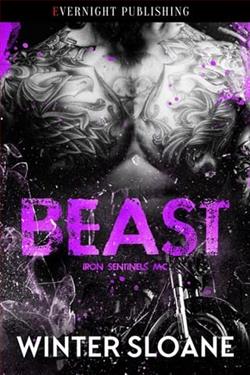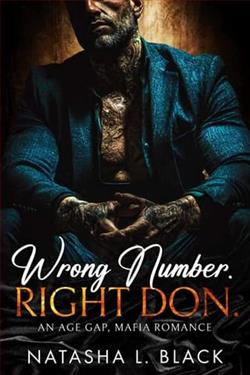Page 71 of A Boy Called Lovesong
From across the cotton fields, the distant sound of a harmonica played on the night wind, the notes floating up and down through the sky with every inhalation and exhalation of breath.
Of Lovesong’s breath.
I knew all too well it was him out there playing, who else would it be?
And I knew exactly where to find him.
The crossroads.
CHAPTER 14
The manuscriptthat I had written for Margot was titled “The 100 Greatest Rock, Pop, and Blues Musicians of All Time.” A definitive list of the greatest musical artists since the beginning of the twentieth century as compiled by yours truly, based on my many interviews with those living and my research on those deceased. It was a comprehensive and definitive list, detailing the lives and achievements of everyone from Buddy Holly to Ray Charles, from Nina Simone to Joan Jett, from John Lennon to Elvis Presley. It was arranged as a countdown, starting at number one hundred and ending on number one, who was none other than the mysterious and renowned Robert Johnson.
Although he only ever recorded two albums, Robert Johnson is credited for having created blues music as we know it, which was the cornerstone of all other musical styles and genres that came after it. Born in Mississippi in 1911, he spent most of his life drifting through the south, playing on street corners for nickels and dimes, a penniless young boy with nothing but a guitar to his name. And yet he is now considered by many as the father of modern music. Yes, there were other blues musicians who came before Johnson. But none of them possessed histalent, his ingenuity, his ability to transform chords and redefine the way music was played.
But Johnson wasn’t always gifted.
In fact, he was regarded by his peers as one of the worst, most disruptive wannabe musicians they’d ever heard.
One night, in his early twenties, Johnson took his guitar to a Mississippi juke joint where blues artists Son House and Willie Brown were the main act. During the show, Johnson tried to impress various patrons by playing his own music, until Son and Willie pulled him up and told him just how bad he was. They told him he was talentless, a no-good nuisance, a terrible guitar player, and before the night was through, they kicked him out of the bar.
After that night, Johnson disappeared for almost a year and a half.
When he returned, his six-string guitar had seven strings on it.
When he played, he conjured up music like it was a spell, playing chords and notes that not only had nobody heard before, but was music that nobody even thought possible to play.
His fingers were puppet masters of the strings.
His songs became legendary… and so did the story behind his mysterious new talent.
One night, according to those who knew him, Johnson found himself in the middle of a crossroads—in the middle of nowhere—demanding to make a deal with the Devil. The deal was simple: Johnson was willing to trade his soul in order to become the greatest guitar player the world had ever known. When the Devil appeared, tall and dark, with a hat covering his face, he took Johnson’s guitar and played it, bestowing it with all his demonic magic so that whenever Johnson played that guitar, the world would stop and listen in awe and wonder.
The Devil even added a seventh string.
Unfortunately, Johnson barely had enough time to relish in his newfound talent and the short burst of fame it brought. At the age of twenty-seven, he was poisoned in a juke joint after choosing the wrong woman to take to his bed, and the wrong bottle of whiskey to drink.
While his legend lives on…
So does his soul…
In eternal damnation.
Dying at the age he did, Robert Johnson also has the morbid distinction of being the first to join what has become known as the “27 Club,” a group of musicians including Janis Joplin, Jim Morrison, Amy Winehouse, Kurt Cobain, Brad Jones, and Jimi Hendrix.
Musicians who all died long before their time at the age of twenty-seven.
Musicians whose talents were so rare and extraordinary, one has to wonder… did they make a deal with the Devil too?
The moon was gone, hidden behind a bank of storm clouds hanging so dense and low I felt as though I could reach up with a knife and gut them open. But full as they were, they refused to burst, instead pressing down on the humidity, thickening the air, making it so hard to breathe that I was panting as I walked cautiously through the dark toward the crossroads.
The dirt on the road crunched beneath my shoes. On either side of me, the cotton plants loomed dark and ominous, like the hedge of a maze promising a place to hide, a place to escape, a place from which one might never return.
In the night sky above, thunder rolled dramatically, and I flinched.
I had left Chet in the room. He seemed keen to stay, perhaps in the hope he might see Iggy again. I was glad I didn’t have to worry about him out here in the dark. Hell, I was concerned enough for myself.
And for Lovesong.















